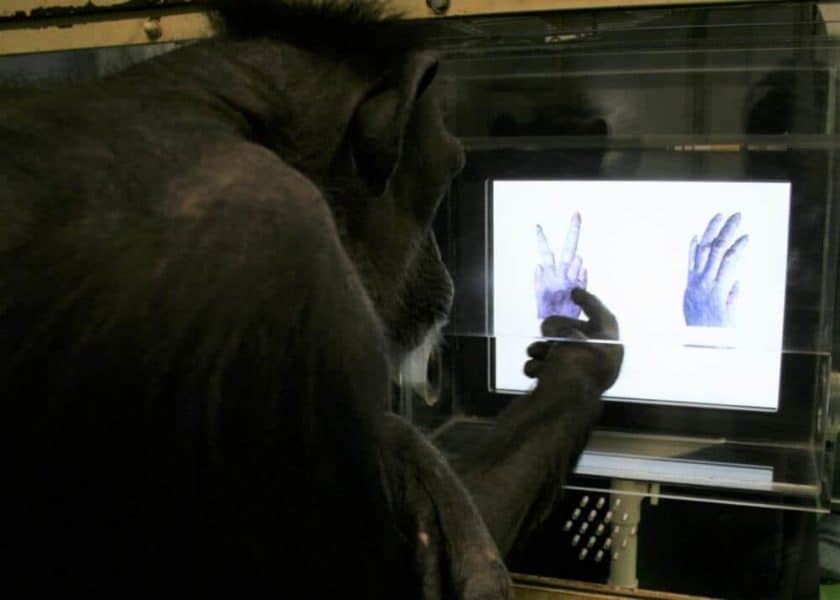Researchers in Japan have taught chimpanzees to play rock-paper-scissors.
The scientists found that chimps of all ages and both sexes could master the circular relationships between the hand signals, though they were slower on the uptake than human children.
The relationship between the rock, paper and scissors hand signals is non-linear and researchers wanted to know if chimps could understand the pairings. It takes enhanced mental capacity, they say, the sort of thinking employed when forming complex relationship networks, solving problems, or updating what you already know about a subject.
Seven chimpanzees at the Primate Research Institute at Kyoto University took part in the experiment. They included males and females and has a range of ages.
The primates were trained via a computer-based touch screen to identify the stronger of two options they saw on screen (paper beats rock; rock beats scissors; scissors beats paper). It took most of the animals about 300 sessions to have it fully mastered. Turns out the paper-scissors pair was the trickiest, reflecting the difficulty in finalizing the circular nature of the pattern.
The team also taught 38 preschool children, aged three to six, the game to study differences in the learning process. They picked up the rules typically within five sessions and the older they were the better their performance. By age 4, they were playing with more skill than luck.
Says Jie Gao of Kyoto University: “This suggests that children acquire the ability to learn a circular relationship and to solve a transverse patterning problem around the age of four years…. The chimpanzees’ performance during the mixed-pair sessions was similar to that of 4-year-old children.” The results are published in the journal Primates.

